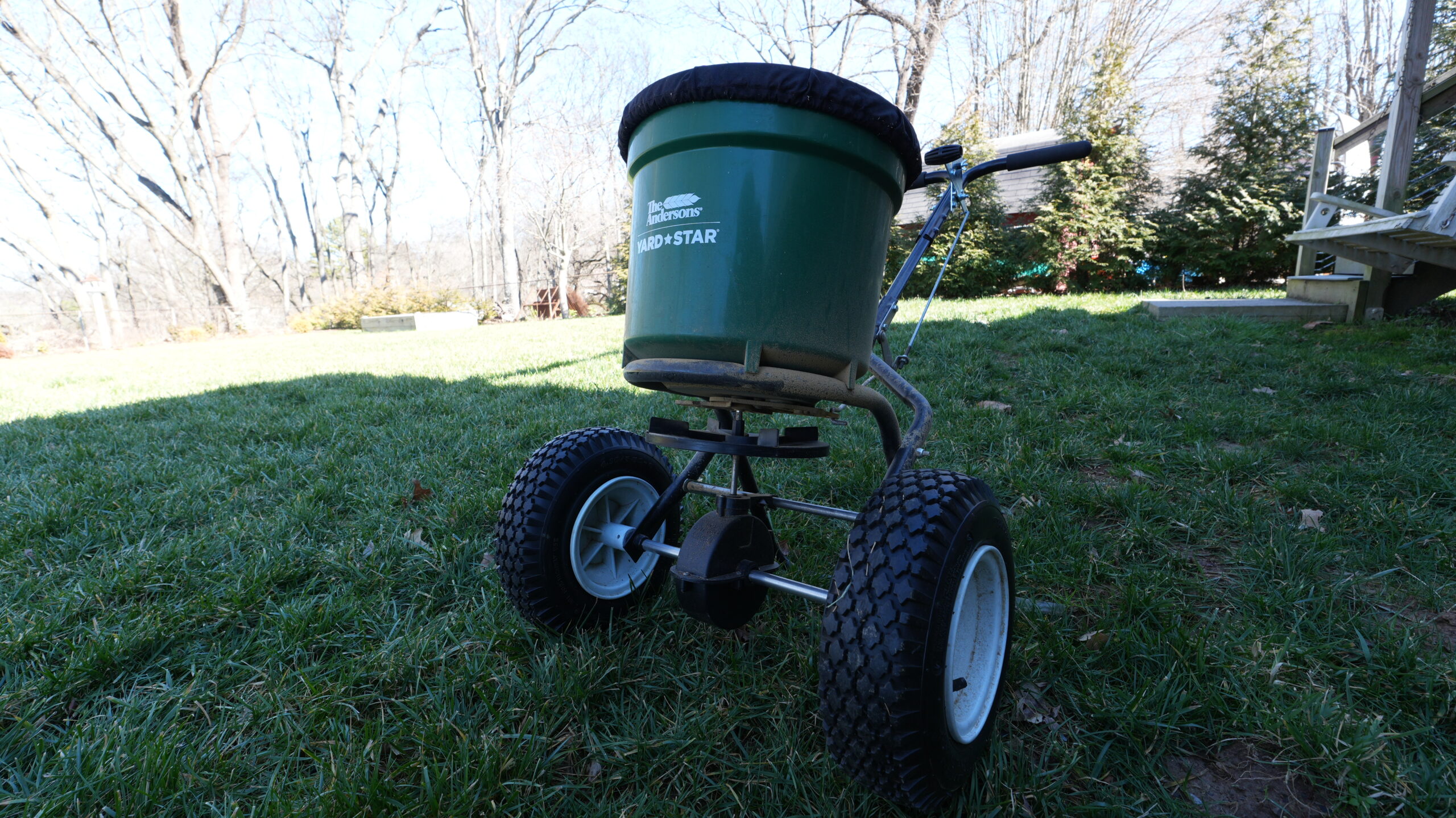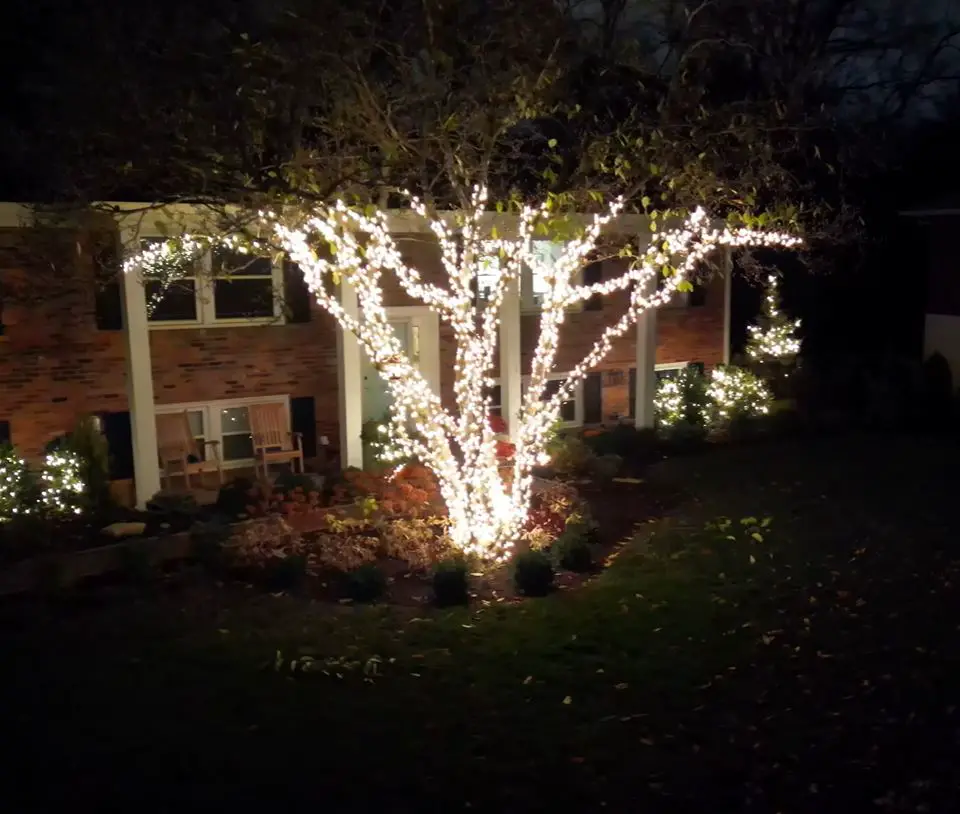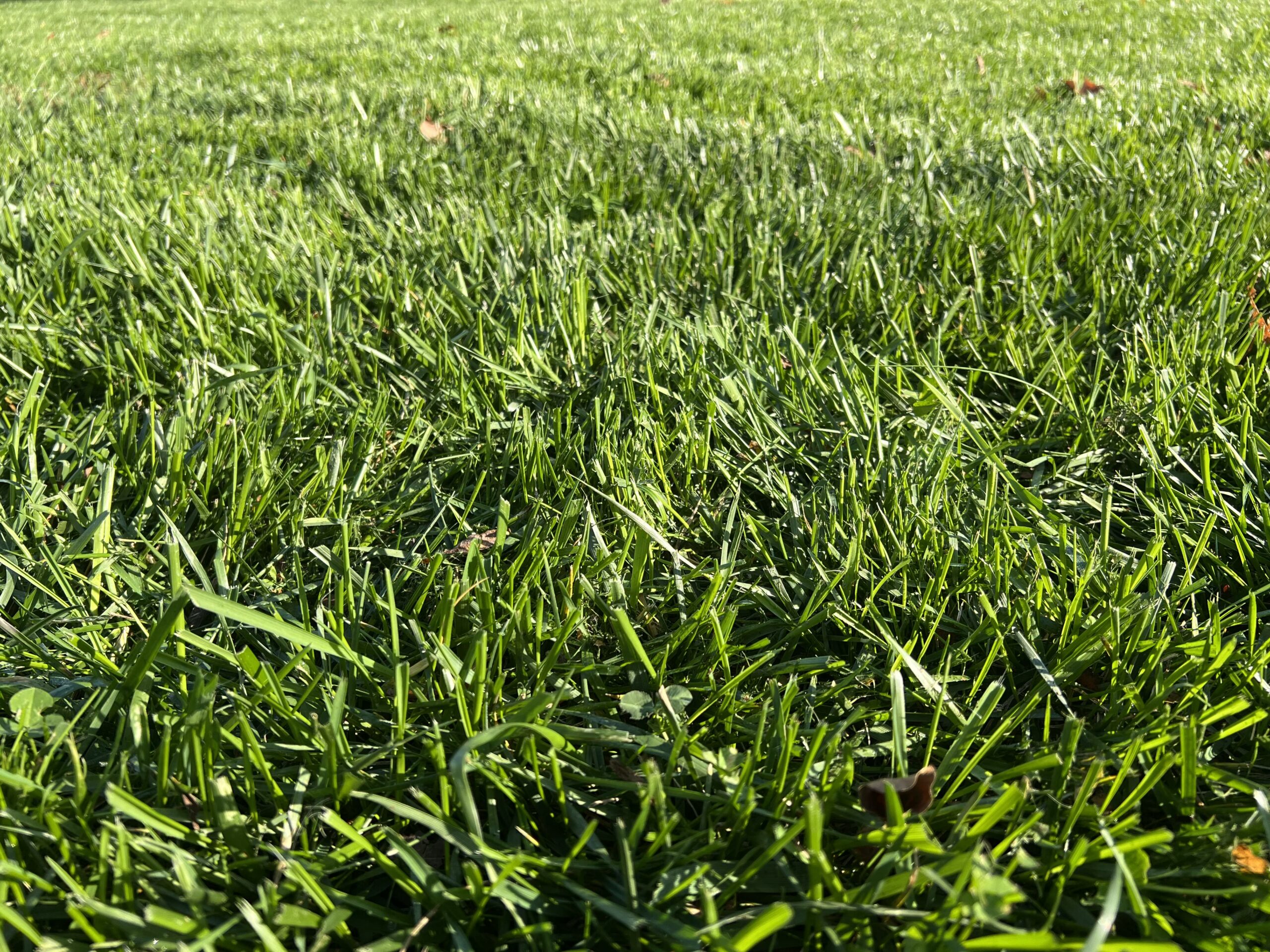Getting rid of ants in your yard WITHOUT killing the grass is like pulling out the table cloth while leaving all the dishes intact. I’ll go ahead and give away the sauce – I use baking soda and vinegar to get rid of them just like the classic science fair experiment.
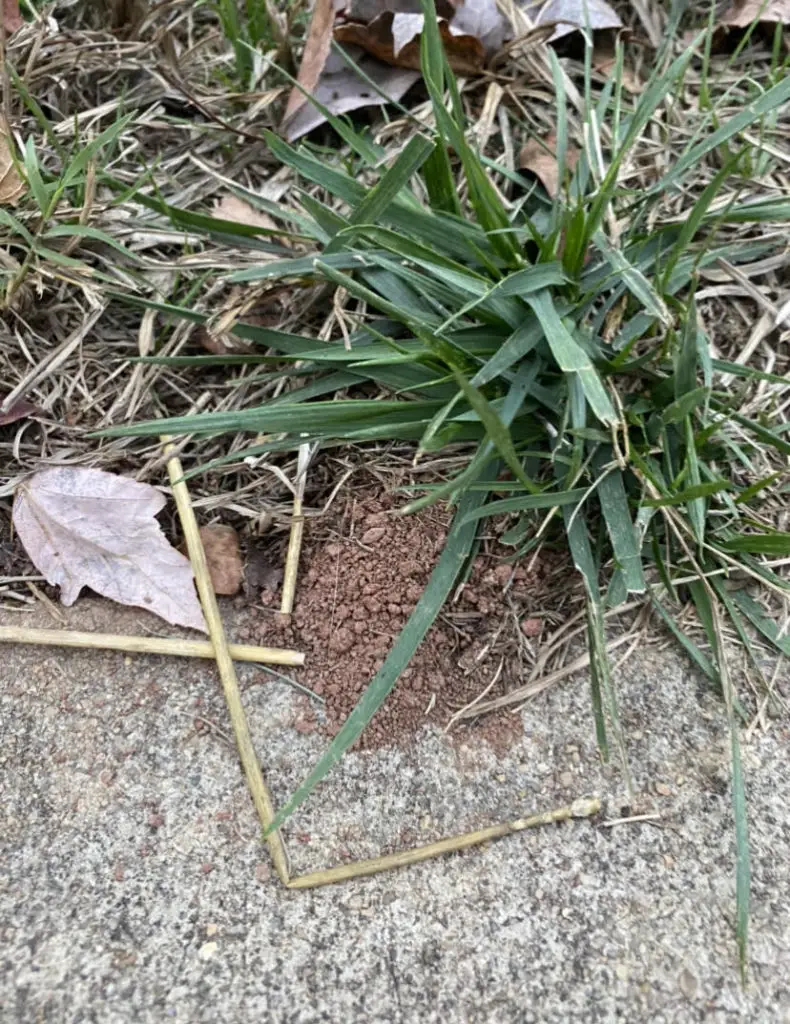
The exponential number of ants colonizing Earth shouldn’t be a surprise, as myrmecologists (nerds) estimate there are over one quadrillion (one million billion) ants on Earth. When there’s one ant in your lawn, there are thousands more nearby, living inside secluded nests underground or in the trees. And unless you live in Antarctica, there’s a good chance that hundreds of ant species call your community home.

Your backyard is likely a breeding ground for thousands of eusocial insects.
Let’s face it: Spotting a single ant in your yard usually isn’t cause for alarm. However, when one ant turns into two, and two turns into four, Houston, we have a problem.
At this point, you’ll have to resist the urge to whip out the flamethrower (which we did in this YouTube short). Despite common belief, you can remove ants from your lawn without killing your grass (or damaging it, for that matter). But before proceeding, there are a few considerations that we must remember:
- Why does your lawn have ants in the first place? We can temporarily eliminate the ants, but if we don’t find the root of the problem, they’ll keep coming back.
- How do you identify ants in your yard? There are more than 12,000 ant species in the world. Are you sure they’re ants or a species that looks similar?
How to Get Rid of Ants Without Killing Your Grass
Follow these techniques to get rid of ants infestations while preserving your grass:
Diatomaceous Earth is a natural way to get rid of ants
Diatomaceous Earth removes many bugs, including ants, fleas, silverfish, and roaches. The formula attracts the pests and causes them to dry out and die within 48 hours. Best of all, insects don’t build up immunity to Diatomaceous Earth, making this product highly effective.
You can apply Diatomaceous Earth on ant mounds, in areas with high moisture, and alongside your house for best results. Rest assured, Diatomaceous Earth is compliant in the use of gardening so that it won’t destroy your grass.

It’s super easy to use and can be found on Amazon for a reasonable price.
Use vinegar to kill ants in your lawn without killing grass
Mixing a 50/50 solution of vinegar with water is a popular DIY technique to eliminate ants. After mixing the two liquids in a spray bottle, spray the mixture on top of the ant nests in your yard. You can also spray the mixture around your patio and against windows and doors for extra protection.

While this concoction will certainly kill ants, you may need a little more fuel. If that’s the case, consider taking advantage of baking soda’s unique ant-killing abilities.
Try Baking Soda to kill ants without killing grass
There’s a good chance you already have baking soda in your cupboard. You probably didn’t realize that it doubles as a baking ingredient and ant killer.
In order to kill ants, you must sprinkle baking soda on top of an ant nest and other areas with high populations of ants. You should also create a barrier around your outdoor living spaces and entry points to your home (doors, windows, etc.).
Moreover, you can combine baking soda with powdered sugar if you have a serious ant issue and want to bait ants into eating the baking soda and powdered sugar death trap.
Just make sure not to combine with an egg, flour, and chocolate chips and heat at 350 for 17 minutes – otherwise you will have just made a chocolate chip cookie.
Natural Bug, Insect, & Pest Killer
Natural Amor Store’s Natural Bug, Insect, & Pest Killer is a proven way to kill ants outdoors and indoors. It comes with an easy-to-use spray bottle perfecting for targeting large mounds.
The formula is also all-natural, featuring a formula of peppermint, clove, and vinegar.
This pest killer doesn’t just get rid of ants; it keeps them away for up to 12 months. Good with us!
The Bottom Line: Ants dead, grass alive
On the one hand, ants can destroy your yard if you let an infestation go unnoticed. On the other hand, removing ants using harsh products can kill your grass. The suggestions we’ve detailed above are a great starting point if you want to get rid of ants naturally without harming your grass.
If your grass is looking rough, it may be because you need to sharpen your mower blades.
Why Do Ants Live in Yards?
Have you ever thought, why me? I do that all the time when I’m looking in the mirror.
Why did ants flock to my yard but not my neighbors? Chances are three things attract them to your yard: Food, water, and protection.
Let’s go deeper.
Ant food in your yard
It’s only a matter of time before ants find a food source in your yard. Ants love to munch on smaller insects, including termites and fly larvae. They’ll also group and feast on larger, dead insects.
Ants enjoy human food, too, so you should ensure your yard is free of food or easily-accessible waste bins. After clearing food from your yard, there’s one more thing to look for: decaying plant matter, including dead trees and weeds. You can get rid of a lot of decaying grass by using a dethatcher.
Ants adore decaying plant matter and come in armies to have a meal.
Water – grass loves it, so do ants
Like mosquitoes and cockroaches, ants are commonly found in areas with high moisture. When it comes to your yard, ants flock to rain puddles and all sorts of things that accumulate water, such as rain collection barrels. If you have leaky pipes or a broken dehumidifier, you can find them inside your home.
Protection for ants
At the end of the day, your yard provides protection and shelter for ants. Most ants will build their mounds directly on top of your soil, while others will find more discrete shelters. Your yard might be attractive to ants if it has tall grass, rocks, and debris, making it easy to set up a shop.
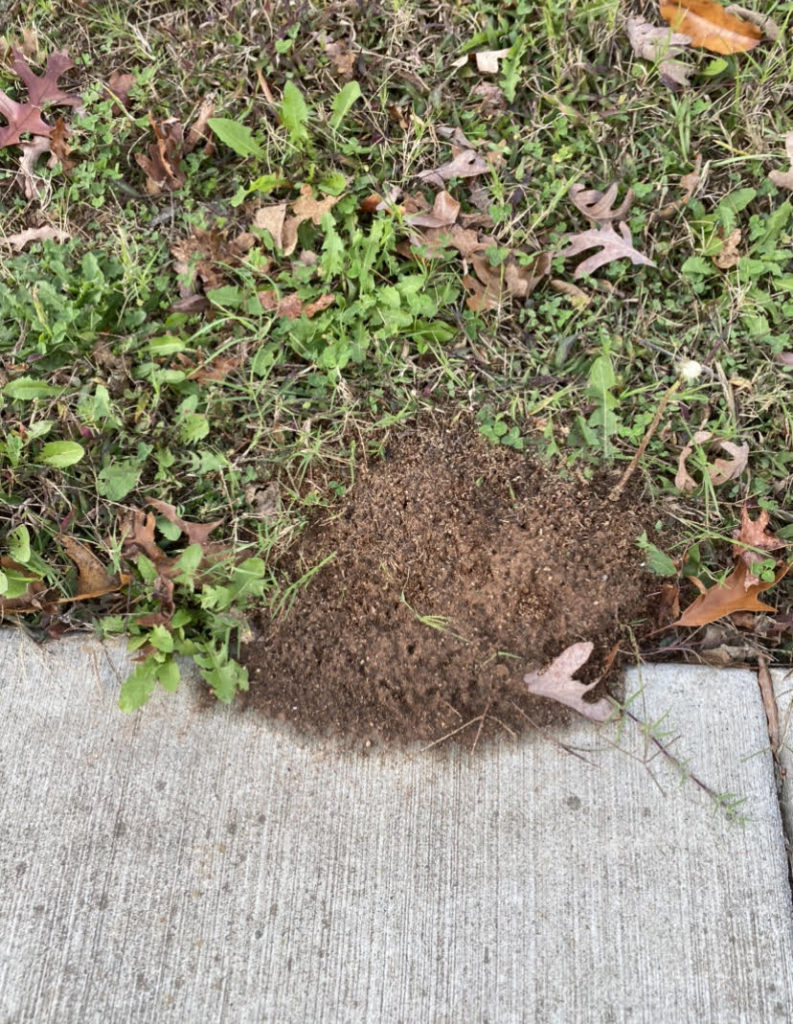
How to Identify Ants in Your Yard
If you think you have a case of ants in your yard, there’s a good chance you do. But how do you know for sure, considering these small bugs can measure less than 3mm in length?
Here are some telltale signs that you might have an ant problem in your yard:
- You have physically spotted ants roaming around your lawn
- There are sawdust trails surrounding your home (these trails come from carpenter ants)
- You notice ant mounds scattered throughout your yard
- Ants have started to make their way into your home
- You spot more ants in moist areas inside and outside of your home
- Ants are prevalent around your indoor and outdoor trash bins
If you’re experiencing these telltale signs of a lawn ant infestation, it’s time to get ready for some ant-killing action. After all, you’ve probably spent hundreds (or thousands) of dollars to get the best lawn on the block.
But not so fast – how do you kill ants without obliterating your yard? Fortunately, we have some tricks up our sleeves to get rid of these pesky insects without killing your belove

